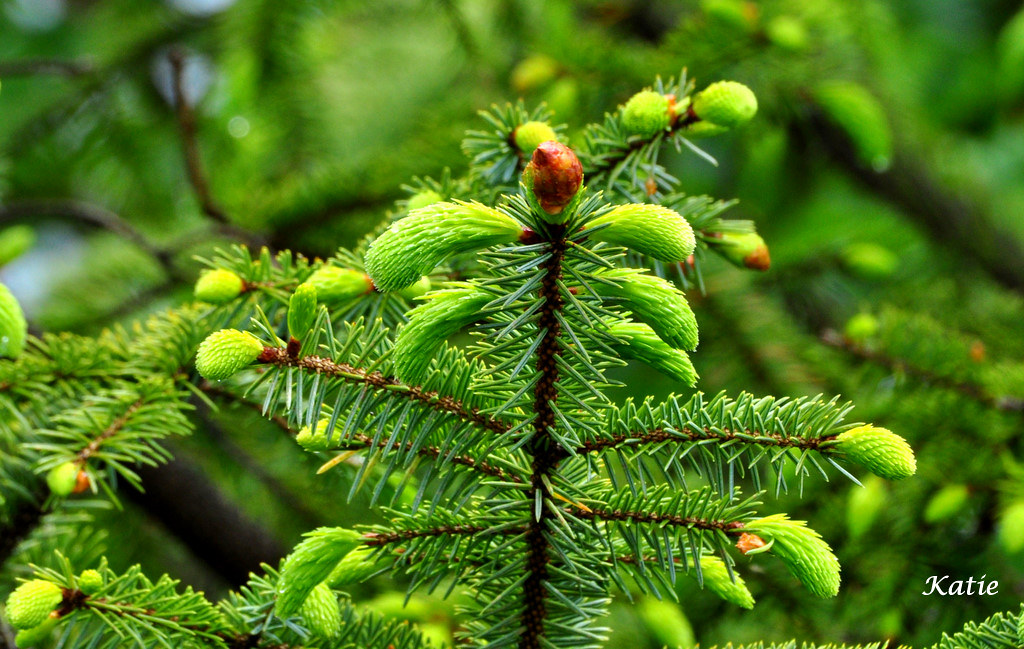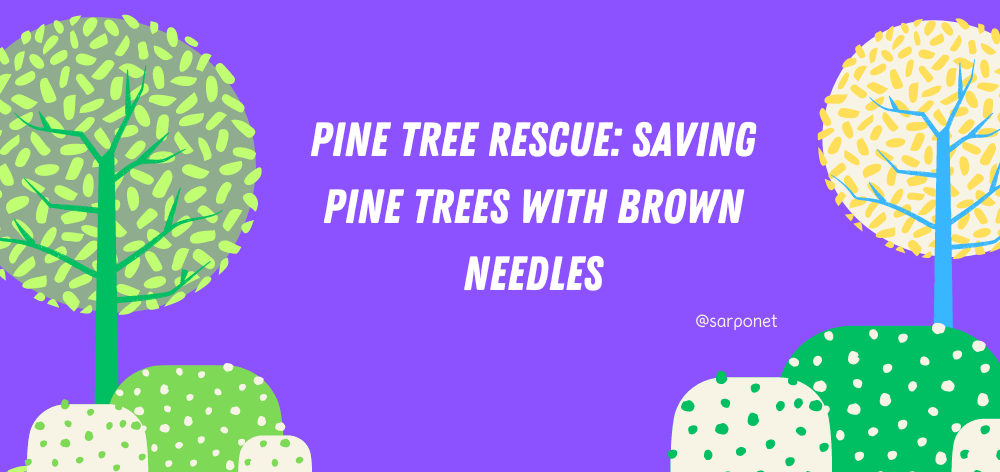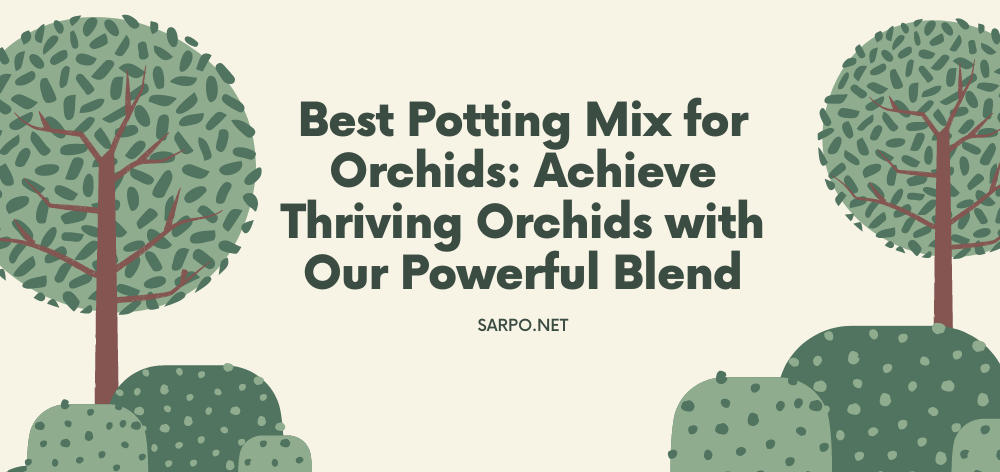Researched & Reviewed: Best Fruit Trees to Grow on Long Island
There are many fruit trees that do well on Long Island. Some of the best include apples, pears, plums, and cherries. Each type of tree has different requirements for care, so it is important to research before planting. One commonly used method for promoting healthy fruit trees is using epsom salt. Epsom salt can be applied to the soil to provide magnesium, which is essential for the overall health of fruit trees. The benefits of epsom salt can include improved nutrient uptake, increased fruit production, and healthier foliage.
Apple trees need full sun and well-drained soil. They should be fertilized in early spring and pruned annually. Pears also need full sun but can tolerate partial shade.
The soil should be moist but not wet, and they should be fertilized in late winter or early spring. Plums require full sun but can tolerate some shade. The soil should be well-drained but not too dry.
They need to be fertilized in early spring and thinned regularly to prevent overcrowding. Cherries need full sun and well-drained soil.
The best fruit trees to grow on Long Island are apple, pear, and plum. These trees are well-suited to the climate and soil of the region and will produce a bountiful crop of delicious fruit for you to enjoy. Apple trees thrive in the cool climate of Long Island and produce a wide variety of apples that are perfect for eating fresh or baking into pies or other desserts.
Pear trees also do well in this climate and produce juicy, sweet pears that make a great addition to any meal. Plum trees round out the trio of best fruit trees for Long Island, as they provide a tart and juicy fruit that is perfect for jams or pies. No matter which of these three fruits you choose to grow, you can be sure that you’ll have a healthy tree that produces plenty of delicious fruit for you to enjoy. So get out there and plant your own little orchard today! In addition to apple, pear, and plum trees, another great option for Long Island is cherry trees. There are several types of cherries that thrive in the region, including sweet cherries and sour cherries. These trees will also provide a delicious harvest and add variety to your orchard. Whether you choose to grow apples, pears, plums, or cherries, you’ll be rewarded with the satisfaction of growing your own fruit and enjoying the flavors of your labor.
Can Lemon Trees Grow on Long Island?
Lemon trees are a common sight in many Long Island yards. While lemons are not native to North America, they have been widely cultivated here since the 17th century. Today, lemons are grown commercially in California, Arizona, and Florida.
But that doesn’t mean you can’t grow your own lemon tree right here on Long Island! There are two main types of lemon trees – Meyer and Eureka. Meyer lemon trees are more cold-hardy and do better in cooler climates like ours.
Eureka lemon trees need warmer temperatures to produce fruit, so they’re not the best choice for Long Island growers. When choosing a lemon tree for your yard, look for a young tree that’s about 2-3 years old. Avoid any tree that has yellow leaves or looks sickly – these could be signs of disease or pests.
Once you’ve found a healthy tree, it’s time to get planting! Lemon trees need full sun to thrive, so choose a spot in your yard that gets at least 8 hours of sunlight per day. They also prefer well-drained soil, so avoid any low-lying areas where water might pool after a rainstorm.
After preparing the planting site, dig a hole that’s twice as wide as the root ball of your tree. Gently remove the tree from its container and place it in the hole. Backfill with soil and water deeply until the ground is saturated.
Once your lemon tree is planted, give it some TLC during its first growing season by watering regularly (about once per week) and fertilizing monthly with an all-purpose fertilizer such as 10-10-10. As it matures, you can cut back on both watering and fertilizing – mature trees only need supplemental water during prolonged dry periods and should be fertilized 3 times per year (in spring, summer, and fall). With proper care, your lemon tree will produce an abundance of juicy fruits for many years to come!
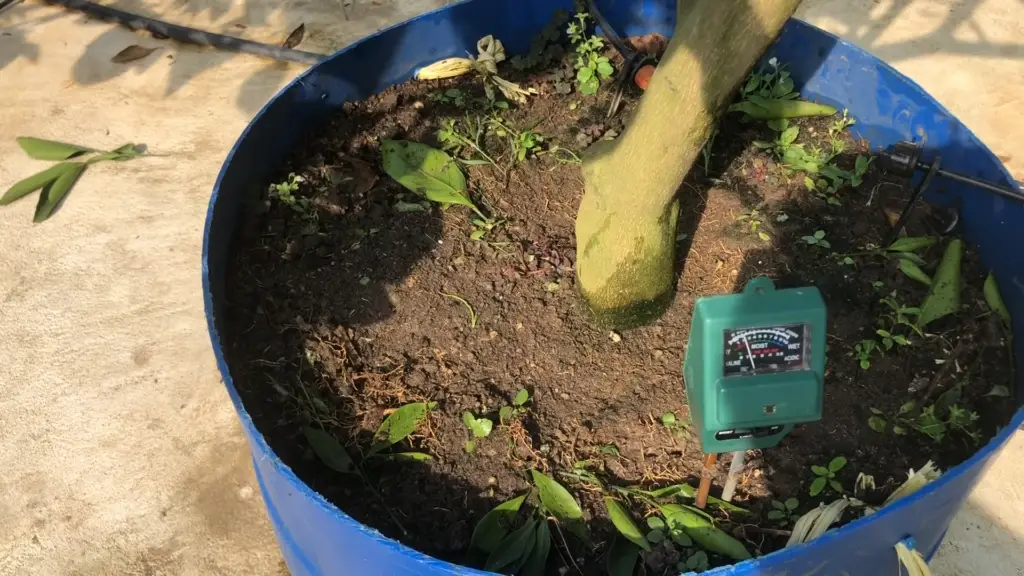
Can You Grow Cherry Trees on Long Island?
You can grow cherry trees on Long Island as long as you choose the right variety and provide proper care. Some varieties that do well in this climate include Chelan, Lapins, and Sweetheart. When planting, make sure to select a spot that gets full sun and has well-drained soil.
Cherry trees need to be watered regularly, especially when they are young and during periods of drought. Fertilize your tree each spring with a balanced fertilizer. Pruning is important to keep your tree healthy and produce plenty of fruit.
Each year, remove any dead or diseased branches. You can also prune to shape the tree or control its size. Heavy pruning should be done in late winter while the tree is dormant.
Cherry trees are susceptible to a few pests and diseases, so it’s important to stay on top of monitoring your tree for signs of trouble. Some common problems include brown rot, powdery mildew, and aphids. If you catch problems early, they are often easier to treat successfully.
What Fruit Trees Can Survive in New York?
New York is home to a wide variety of fruit trees that can survive the winters and provide delicious fruits during the spring and summer. Many of these trees are native to the state, including apples, cherries, pears, and plums. Other common varieties include peaches, apricots, nectarines, and figs.
While most fruit trees require some type of pruning or training to produce the best results, many of these varieties will still produce edible fruits without any intervention. In general, fruit trees need full sun and well-drained soil to thrive. They also need regular watering during the growing season, especially when they are bearing fruit.
Most fruit trees are relatively easy to care for and can provide years of enjoyment for both gardeners and wildlife alike.
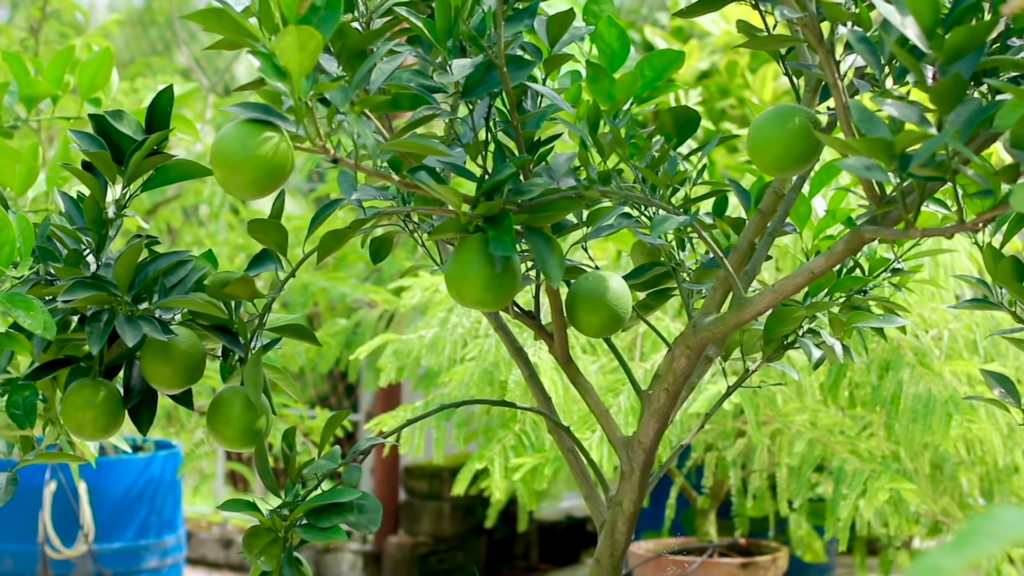
What Fruits Grow Best in NY?
There are a wide variety of fruits that grow well in the state of New York. Some of the most common and popular varieties include apples, grapes, cherries, pears, and plums. NY is also home to many citrus fruits like oranges and lemons.
The climate in New York is relatively mild, which helps many different types of fruit to thrive. The state experiences all four seasons, which allows for a long growing season. This means that there is plenty of time for fruit trees and vines to produce a bountiful crop.
NY is known for its apple production. The state grows more than 30 different varieties of apples, including favorites like Fuji, Golden Delicious, and Granny Smith. Apples are typically harvested from late August through early October.
Grapes are another popular fruit grown in New York State. There are over 100 grape growers in NY, producing over 400 million pounds of grapes each year! Popular varieties grown in the state include Concord, Niagara, and Catawba grapes.
Grapes are usually harvested from mid-August through mid-September. Cherries are also a widely grown fruit in New York State. More than 50 million pounds of cherries are produced each year in NY!
Popular cherry varieties grown in the state include Sweetheart, Bing, and Lapin cherries. Cherries are typically harvested from late June through early July. Pears and plums are two other types of fruit that do well in the cooler climate of New York State.
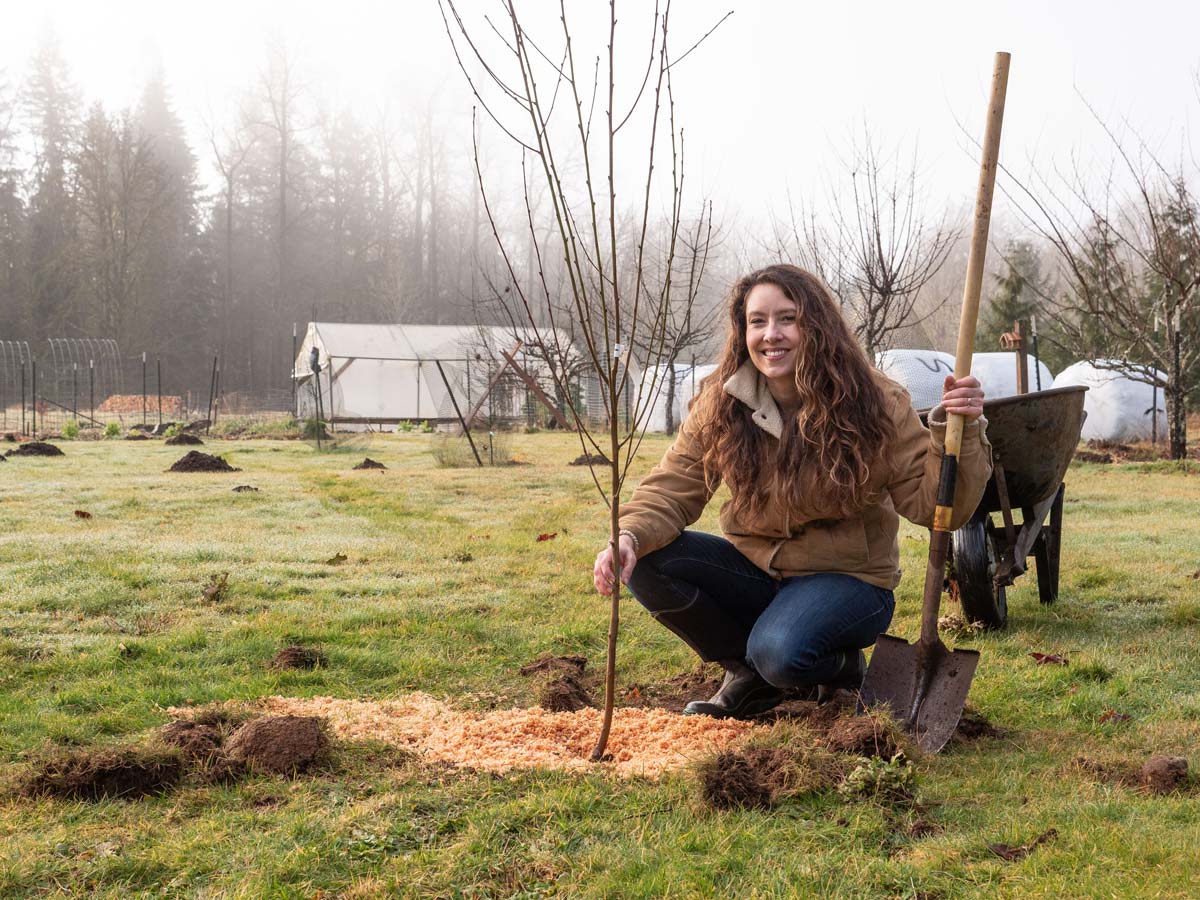
Credit: melissaknorris.com
Best Fruit Trees to Grow in Upstate NY
In Upstate New York, the best fruit trees to grow are apples, cherries, grapes, and pears. Apples thrive in the region’s cool climate and are a popular choice for home gardens. Cherries also do well in cooler temperatures and are perfect for pies and other desserts.
Grapes require a longer growing season than other fruits, but they can produce large crops of sweet or tart berries that make excellent wines. Pears are another good option for Upstate gardeners as they tolerate cold weather well and produce juicy fruits that can be eaten fresh or used in recipes.
Fruit Trees That Grow in New York
New York is a great place to grow fruit trees! There are many different kinds of fruit trees that do well in the New York climate. Here are some of our favorites:
Apple Trees – Apple trees require a cold winter to properly produce fruit, and New York has no shortage of frigid winters! Apples are a great source of Vitamin C and fiber and can be eaten fresh, cooked, or used in baking. Cherry Trees – Cherry trees need cool weather to thrive, and again, New York has no shortage of that! cherries are a delicious summer treat that can be enjoyed fresh off the tree or used in pies, jams, or other recipes.
Peach Trees – Peach trees like warm weather, and while New York summers can be hot, they’re not typically too hot for peach trees. Peaches are a juicy and sweet fruit that makes a great addition to any meal. Plum Trees – Plum trees also enjoy warm weather but can tolerate cooler temperatures better than peach trees.
Plums are perfect for snacking on or using in preserves or other recipes. These are just a few of the many types of fruit trees that do well in New York. If you’re looking to add some fruity goodness to your yard, these are all great options!
Best Vegetables to Grow on Long Island
When it comes to gardening, Long Island has a lot to offer. The climate is moderate and the soil is rich, making it ideal for growing a variety of vegetables. Here are some of the best vegetables to grow on Long Island:
- Tomatoes – There are countless varieties of tomatoes that do well on Long Island. From heirloom varieties to cherry tomatoes, you can find a type that suits your taste. Just be sure to give them plenty of sun and water and you’ll be rewarded with a bountiful harvest.
- Cucumbers – Cucumbers love the heat and humidity of Long Island summers. They’re easy to grow and will produce an abundance of crisp, refreshing cucumbers that are perfect for salads or pickling.
- Squash – Whether you prefer zucchini, yellow squash, or pumpkins, they’ll all do well on Long Island. Just plant them in a sunny spot and keep them well-watered and you’ll have plenty of squash to enjoy all summer long.
- Lettuce – Lettuce is another vegetable that does great in the moderate climate of Long Island. It’s easy to grow and can be planted in early spring or late summer for a fall harvest.
There are many different types of lettuce available, so you can choose your favorite or mix things up each year. - Peppers – Peppers come in all shapes, sizes, and colors so there’s sure to be one that you like!
Dwarf Fruit Trees New York
Dwarf fruit trees are perfect for small spaces, like patios and balconies. And because they’re smaller, they’re easier to care for than full-size trees. Plus, you’ll enjoy an abundance of fresh fruit without all the work of a traditional garden.
If you live in New York City, you can find dwarf fruit trees at many nurseries and garden centers. But before you buy, it’s important to do your research. Some types of fruit trees thrive in our climate while others don’t.
Here are a few tips:
- Choose a type of tree that is known to do well in New York City. Some good options include apples, pears, plums, and cherries. Avoid citrus fruits like oranges and lemons – they typically don’t produce much fruit in our climate.
- Make sure the tree is labeled “dwarf” or “semi-dwarf.” These varieties will stay small enough to fit in your space.
Avoid “standard” or “full-size” trees – they will eventually outgrow their location and become difficult to manage.
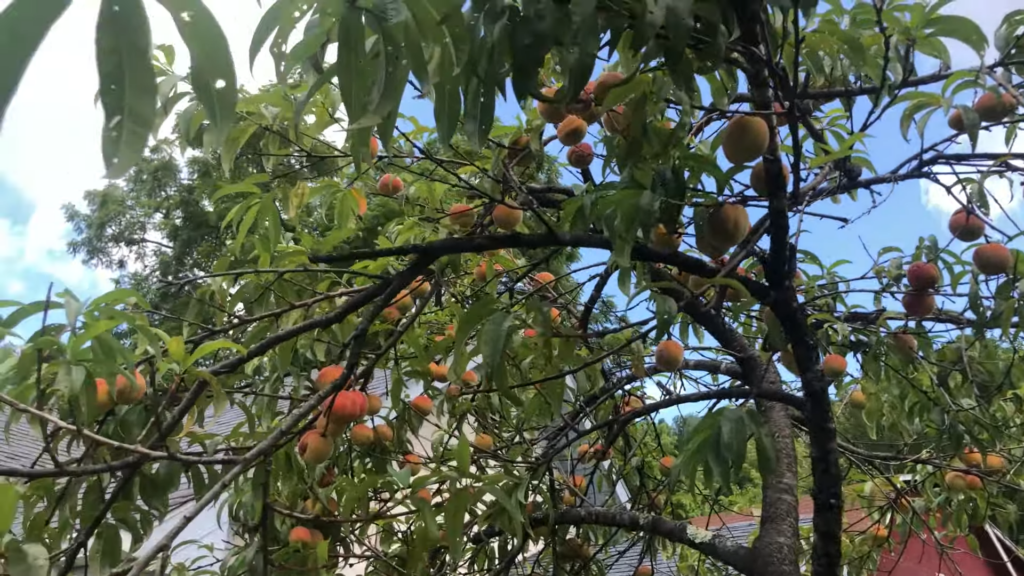
Fruit Trees That Grow in Upstate NY
When it comes to finding fruit trees that will thrive in Upstate New York, you have many options. The climate in this region is perfect for growing a wide variety of fruit trees, from apples to cherries and everything in between. One of the best things about planting fruit trees in Upstate New York is that you can enjoy fresh, homegrown fruit all summer long.
There’s nothing quite like biting into a ripe piece of fruit that you’ve grown yourself! Here are some of the best fruit trees to grow in Upstate New York: Apple Trees: Apples are one of the most popular fruits grown in Upstate New York.
And for good reason – they’re delicious and easy to grow! There are many different varieties of apple trees available, so you can choose the ones that produce your favorite types of apples. Some popular varieties include Granny Smith, Honeycrisp, and Red Delicious.
Cherry Trees: Sweet cherries are another great option for growers in Upstate New York. Cherry trees produce an abundance of large, juicy berries that make excellent pies, jams, and other desserts. They also make a beautiful addition to any landscape!
Some popular cherry tree varieties include Bing, Rainier, and sweetheart cherries. Peach Trees: Peaches are another delicious stone fruit that does well in Upstate New York. Peach trees produce an abundance of fuzzy fruits that are perfect for eating fresh or using in recipes like cobblers or pies.
Popular peach tree varieties include Elberta, Belle Of Georgia, and Red Haven peaches.
Easiest Fruit to Grow in New York
If you’re looking for an easy fruit to grow in New York, consider grapes. Grapes are hardy and can tolerate a wide range of conditions, making them ideal for growing in the Empire State. Plus, they’re a versatile fruit that can be used in many different ways – from eating fresh to making wine.
Of course, there’s more to growing grapes than just planting them and letting them go. You’ll need to provide proper support for your grapevines, prune them regularly, and protect them from pests and diseases. But if you’re up for the challenge, growing grapes can be a rewarding experience.
And who knows – maybe one day you’ll be able to say you made your own New York wine!
Fruit Trees That Survive Winter
Fruit trees are a great addition to any yard or garden, and they can provide fresh fruit for your family to enjoy. However, if you live in an area with cold winters, you’ll need to choose fruit trees that can survive the winter weather. Here are some of the best options:
- Apple Trees – Apples are a popular choice for fruit trees, and they’re also one of the most cold-hardy options. Most apple trees will survive in temperatures as low as –30 degrees Fahrenheit.
- Pear Trees – Like apples, pear trees are also quite cold-tolerant. They can typically withstand temperatures down to about -20 degrees Fahrenheit.
- Peach Trees – Peach trees are less cold-hardy than apples and pears, but they can still survive in colder climates if they’re properly protected. They should be able to withstand temperatures down to about 0 degrees Fahrenheit.
- Cherry Trees – Cherry trees are even less hardy than peach trees, so they’ll need a bit more protection from the cold winter weather.
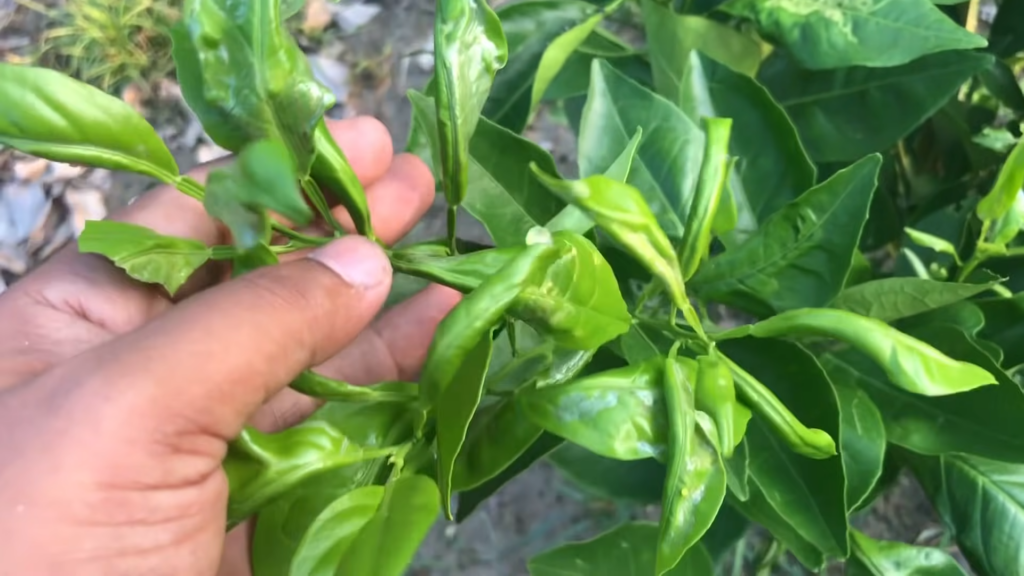
Long Island Gardening Calendar
It’s that time of year again when the days are getting shorter and the nights are getting cooler. That can only mean one thing for gardeners on Long Island- it’s time to start thinking about your fall gardening calendar! There are a few key things to keep in mind as you start planning your gardening calendar for the fall season.
First, make sure to take into account the average first frost date for your area. This will help you determine how long you have to get your plants in before they’re at risk of being damaged by frost. Next, consider what crops you want to grow this fall.
Some vegetables, like kale and Brussels sprouts, actually prefer cooler weather and will do well even into the early winter months. Other crops, like tomatoes and peppers, need a little more warmth to thrive so it’s important to plan accordingly. Finally, don’t forget to factor in some time for cleanup at the end of the season.
This is especially important if you plan on growing vegetables next spring- you’ll want to make sure your garden is free of any diseases or pests before planting new seeds. By following these simple tips, you’ll be well on your way to having a successful fall gardening season on Long Island!
Frequently Asked Questions:
What fruit can be grown on Long Island?
Apples, grapes, blueberries, strawberries, and peaches can be grown on Long Island.
Can you grow cherry trees on Long Island?
Yes, you can grow cherry trees on Long Island. Cherries, particularly sweet and sour cherry varieties, can thrive in the climate and soil conditions of Long Island.
Do lemon trees grow on Long Island?
Lemon trees do not typically grow outdoors on Long Island due to the region’s colder climate. However, they can be grown in containers and brought indoors during the colder months.
Conclusion
If you’re looking for the best fruit trees to grow on Long Island, there are a few things to consider. The climate and soil type are important factors in determining which trees will thrive in your area. Additionally, you’ll want to decide which fruits you’d like to grow and whether you want dwarf or standard-sized trees.
Some of the best fruit trees for Long Island include apples, cherries, peaches, and plums. Apples need a cold winter dormancy period to produce fruit, so they’re not well suited for tropical climates. However, they thrive in the moderate temperatures of Long Island.
Cherries also require a dormant period and do best in areas with full sun and good drainage. Peaches and plums are heat-loving fruits that need at least six hours of sunlight per day. They prefer sandy soils with good drainage.
When choosing fruit trees for your Long Island home, it’s important to select varieties that are adapted to the local climate and soil conditions. With a little research, you can find the perfect tree for your yard and enjoy fresh, homegrown fruit for years to come!
Related Articles:
10 Best Small Evergreen Trees with Non Invasive Roots
 Dr Ahsanur Rahman, PHD
Dr Ahsanur Rahman, PHDPine Tree Rescue: Saving Pine Trees with Brown Needles
 Dr Ahsanur Rahman, PHD
Dr Ahsanur Rahman, PHD

